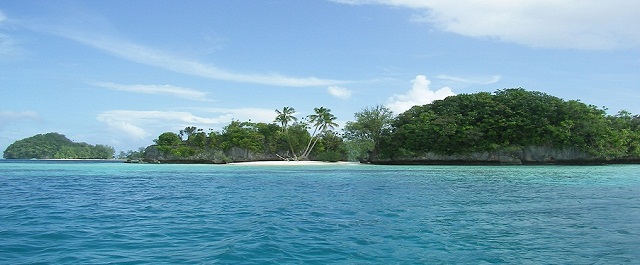ACPC assesses climate change needs in Seychelles and Mauritius

Mauritius underscores flooding and storm surges as key areas where it needs support
In a recent reconnaissance mission to Mauritius, ACPC met with a cross section of stakeholders including high level government officials drawn from the ministry of environment and sustainable development, ministry of finance, ministry of agriculture, Marine Institute, the Indian Ocean Commission (IOC), the National Disaster Risk Reduction and Management Centre and UNDP.
The Ministry of Environment and Sustainable Development said that it is looking for support for their loss and damage strategy as well as for the climate change centre, with the aim of setting up an observatory to share experiences and data with other countries in the region. They emphasized focus on extreme events and noted that little has been done on scientific socioeconomic analysis to assess the level of vulnerability. An overview of the key climate change policies and plans was presented which identified three key needs: capacity building, education and information and setting up the right institutional framework to address climate change and manage the environment in the years ahead.
Ministry officials called for more assessments to understand who and what are vulnerable to the impacts of climate change. A manual for socio-economic assessment would also be useful. They also emphasized the importance of looking at sectoral issues. At the regional level it is important to focus on slow onset as well as extreme events and to understand who is vulnerable.
The representative of the Ministry of Finance said that insurance was missing as were policies and plans that need to be in place to address flash floods, which have become more frequent in Mauritius. The representative of the Ministry of Agriculture said that a lot of proposed work on adaptation has not yet been funded and that should be a priority. He identified two elements of loss and damage: adaptation and beyond adaptation, both of which need to be included.
The National Disaster Risk Reduction and Management Centre highlighted a major challenge i.e. the fact that hydrology has been left out of the met services. The following needs were identified during the discussion including: updating hazard maps, improved flood management, shelters for protracted situations, understanding storm surges better and building capacity in other areas, multi-hazard early warning systems, building disasters into land-use planning and more mapping exercises.
Mainstreaming climate change into development policies through better engagement with the Ministry of Finance and capacity building and institutional challenges are also priorities in Mauritius and there is also a need to harmonize localized initiatives.
In a nutshell, the following needs were identified for Mauritius:
- Socio-economic assessment, especially looking at impacts on youth and women
- Observatory & Climate Change Centre
- Upgrading maps
- Research on slow onset impacts and how they can be addressed
- Pilots (risk management approaches)
- Increased capacity for flood prediction and management
- Integrated early warning system at all levels.
Debt for adaptation an option to respond to climate change in Seychelles
An ACPC team met with officials from the ministry environment, ministry of foreign affairs and ministry of finance in Seychelles to assess the countries climate change priorities.
Among key support areas, more training is needed for risk assessment, particularly assessing damage and losses and mainstreaming of climate change into development policies and plans. At the regional level, the Seychelles is more advanced than other countries in the region but still has needs, which require an integrated approach. Thus, it was also felt that there could be more regional cooperation on disaster preparedness. Countries in the region should have more urgency in what happens in the region through the Indian Ocean Commission (IOC) rather than relying too much on external support.
As the economy of SIDS is largely dependent on ocean and marine services, the blue economy is an important issue and one that has been championed by the Seychelles in various international fora. The Seychelles controls 1.5 million square kilometers of ocean and has recently decided to protect 30 percent (with help from The Nature Conservancy) and sustainably manage the rest according to principles of sustainability.
A debt for adaptation program has garnered interest from a few developing countries whereby debt would be forgiven and resources channeled into managing the protected area. At the regional level it is hoped that other countries will get on board and at the international level that there will be more support for the idea and other countries will take similar initiatives.
During the past decade the dry season has become hotter and shorter while the wet season has become longer and more intense, which has brought a number of challenges. The ensuing discussion focused on the need to strengthen the national meteorological services. There is data available but there is a need for more equipment to collect more data, especially real time data. Information on the impacts of climate change on key sectors is also needed.
The priorities identified for the Seychelles are:
- Support to build a network for data collection and early warning in all islands of the Seychelles
- Support to develop an observatory to hold the data in one place
- Increased capacity to collect real time data and its interpretation
- Human resources capacity enhancement through scholarship programmes
- Increased capacity for risk assessment
- Increase the profile of the blue economy and increase the contributions to the economy from various sectors of the blue economy
- Mainstreaming climate change into development policies and plans and ensuring that climate change does not deter development
- Log in to post comments


